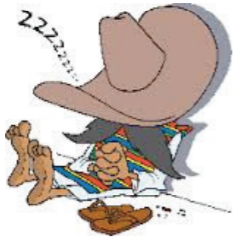Questão b2373fd6-dd
Prova:MACKENZIE 2015
Disciplina:Inglês
Assunto:Interpretação de texto | Reading comprehension
According to the text, the wrong alternative is
According to the text, the wrong alternative is

SIESTA TIME Finally, vindication for power nappers. Far from being lazy louts,
siesta-takers are actually doing their bit for the firm. According to Sara
Mednick and her colleagues at Harvard, just 60 minutes of shut-eye in
the middle of the day can make you perform like the fresh daisy you were
first thing in the morning. But it has to be bona fide sleep; a mere rest,
they found, has no effect.
Dr. Mednick, whose results have just been published in Nature
Neuroscience, wanted to know what effect power napping would have on
people’s visual perception. She asked 30 student volunteers to come into
her laboratory. Four times on the same day, at 9am, noon, 4pm and 7pm,
they were required to stare at a computer screen for an hour. Their task
was to pick out a vertical or horizontal bar from a striped background - an
established test of visual perceptiveness. The more quickly they picked
out the bar, the more acute their perception.
All the volunteers had slept well in the days before the test, and
had been warned off alcohol. During the test day, nicotine addicts were
allowed to indulge their habits, but everyone had to remain uncaffeinated.
Despite this cosseting, the performance of the ten volunteers who went
straight through the day without a nap deteriorated rapidly. Their best
scores were first thing in the morning, and it was downhill from there on.
By the last session, they were taking 52% longer, on average, to identify
the orientation of the bar than they had in the first.
The Economist

SIESTA TIME
Finally, vindication for power nappers. Far from being lazy louts,
siesta-takers are actually doing their bit for the firm. According to Sara
Mednick and her colleagues at Harvard, just 60 minutes of shut-eye in
the middle of the day can make you perform like the fresh daisy you were
first thing in the morning. But it has to be bona fide sleep; a mere rest,
they found, has no effect.Dr. Mednick, whose results have just been published in Nature Neuroscience, wanted to know what effect power napping would have on people’s visual perception. She asked 30 student volunteers to come into her laboratory. Four times on the same day, at 9am, noon, 4pm and 7pm, they were required to stare at a computer screen for an hour. Their task was to pick out a vertical or horizontal bar from a striped background - an established test of visual perceptiveness. The more quickly they picked out the bar, the more acute their perception.
All the volunteers had slept well in the days before the test, and had been warned off alcohol. During the test day, nicotine addicts were allowed to indulge their habits, but everyone had to remain uncaffeinated. Despite this cosseting, the performance of the ten volunteers who went straight through the day without a nap deteriorated rapidly. Their best scores were first thing in the morning, and it was downhill from there on. By the last session, they were taking 52% longer, on average, to identify the orientation of the bar than they had in the first.
The Economist
A
Volunteers who did not have any sleep during the day didn’t do well on the
test.
B
The last session the volunteers were exposed to was generally longer than
the first.
C
Nature Neuroscience probably publishes scientific work.
D
First thing in the morning people usually perform well.
E
The volunteers had been sleeping well before the test.






